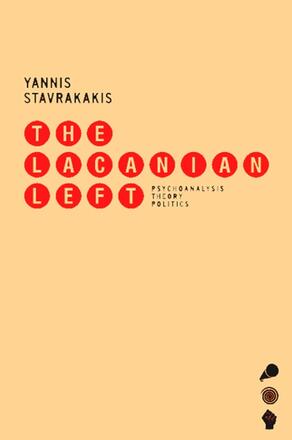
The Lacanian Left
Essays on Psychoanalysis and Politics
Alternative formats available from:
Innovative exploration of the relationship of Lacanian psychoanalysis to political and democratic theory.
Description
In recent years psychoanalysis—especially Lacanian theory—has been gradually acknowledged as a vital resource in the ongoing reorientation of contemporary political theory and analysis. Of particular note is that the work of Jacques Lacan is increasingly being used by major political philosophers associated with the Left. This indicates the dynamic emergence of a new theoretico-political horizon: that of the "Lacanian Left." However, this field has yet to be properly conceived as a field, and this is the first book to bring it into academic consciousness and to systematically draw its implications for concrete political analysis. This book offers an accessible mapping of its main contours; a detailed examination of the convergences and divergences between the major figures active within or at the periphery of this terrain, including Slavoj Žižek, Ernesto Laclau, Alain Badiou, and Cornelius Castoriadis; and a critical evaluation of their respective arguments on social construction and the political, affectivity and discourse, ethics and social change, and negativity and positivity.
Engaging with the role of affect and emotion in political life through the central Lacanian notion of "enjoyment," The Lacanian Left puts forward innovative analyses of political power and authority, nationalism, European identity, consumerism and advertising culture, and de-democratization and post-democracy. It will be of value to everyone interested in exploring the potential of psychoanalysis in reinvigorating political theory, critical political analysis, and democratic politics.
Yannis Stavrakakis is Associate Professor in the Department of Political Science at Aristotle University of Thessaloniki. He is author of Lacan and the Political and coeditor (with David Howarth and Aletta J. Norval) of Discourse Theory and Political Analysis: Identities, Hegemonies and Social Change and (with Jason Glynos) Lacan and Science.
Reviews
"Stavrakakis's book is an interesting and relevant contribution to debates on the future of democracy and the role of Lacanian psychoanalysis in political theory. It is effective in outlining some of the contributions of the thinkers discussed, as well as applying Lacanian theory to various contexts, such as advertising, public relations, and European identity." — H-Net Reviews
"Stavrakakis sets himself a truly daunting task: to draw the political implications, in the current era of global turbulence and 'post-political' ideology, of Lacan's intractable concept of 'the real.' This means moving from the comfort zone of cultural studies out into a dangerous theoretical minefield. It is the great merit of this book to have steered a successful course, combining critical readings of such influential thinkers as Laclau, Žižek, and Badiou with a powerful affirmation of how psychoanalysis can still help us reconceptualize political praxis today." — Luke Thurston, University of Wales, Aberystwyth
"This insightful, compelling book grapples with some of the most urgent political concerns facing us today. Stavrakakis writes, however, with unshakeable optimism, arguing forcefully that ethics and psychoanalysis can reinvigorate and partly redefine democratic alliances." — Christopher Lane, Northwestern University
"Yannis Stavrakakis contends that the Lacanian rotation around the unsymbolizable element of experience provides the components of modesty and energy upon which to rebuild the Left. He makes an excellent case. While we must also address allied, yet different sources of modesty and energy identified by other traditions, this lucid and impassioned text provides an indispensable contribution to the empowerment of the Left." — William E. Connolly, Johns Hopkins University.
"In this readable and enlightening book, Stavrakakis deftly explores the affective limits of discourse analysis while revealing the transformative potential of Lacanian political theory. A must read for anyone looking for novel approaches to nationalism, consumerism, and the other political and social conundrums of our day." — J. K. Gibson-Graham
"This book is an extraordinary tour de force. After a panoramic view of the Lacanian streams that cut through the intellectual landscape of contemporary political analysis, Stavrakakis develops his own interpretation of how a Lacanian political theory can shed light on fundamental social issues such as national identity, consumerism, and advertising. Impeccably researched, invariably stimulating and madly original, this book will appeal to everyone interested in cutting-edge political theory and social analysis. As a bonus, many of Lacan's most difficult concepts and formulations are elucidated and elaborated in accessible terms. Forget Žižek, here comes Stavrakakis!" — Dany Nobus, Brunel University